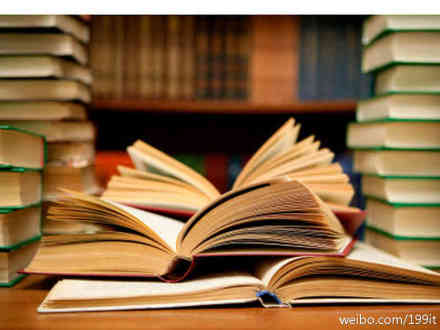神秘内容 Loading...
 (来源:老牌的英语学习网站 http://www.EnglishCN.com) (来源:老牌的英语学习网站 http://www.EnglishCN.com)
Chinese reluctance to read deeply underlines the nation's recent departure from the era of subsistence and its current obsession with affluence.
On a flight from Frankfurt to Shanghai, an Indian engineer noticed row after row of Chinese passengers deep into their iPads, playing games or watching movies. None was doing any reading.
Meng Shamei, the Chinese name of this engineer, posted his or her observation online and got a tidal wave of responses, most of which corroborated his or her view.
I have to admit I have not done my due diligence to verify the identity of this person. There have been frequent stories of Chinese posing as foreigners to give a semblance of objectivity to their criticism of China. The title "Harvard professor" has been used or rather, abused, so often it has turned into something of a joke.
To even a casual observer, what Meng wrote was not surprising. Another posting a few years ago by a Chinese passenger noticed the difference between first class and regular class: Those sitting in first class tend to read while those in regular class play games.
For me, the biggest shock came when Han Han, the young writer with enormous influence on China's youth, was asked by a reporter about his reading habits and he answered that he read only magazines. As if to show some proof, the accompanying photo revealed very few books on his bookshelf.
Before we get to "Why Chinese do not read", I'll reveal the spoiler, which is the most frequent defense. "We read. We just do not read in the same way as the old generations do. We rely on modern gadgets for faster access."
It is true that you cannot claim that only content on a printed page is knowledge. Anything that's printed can be displayed digitally. There are millions of books available in digital form. And true electronic books can incorporate sound and video, thus enhancing the reading experience. Print is going the way of dinosaurs, many forecast. Even if they don't vanish completely, books will become a niche item a la long-playing records.
To those who believe they can get anything and everything from the Web, I'll hereby add my two cents' worth: Yes, you can, but you won't do it. I download thousands of books, but I use them for research, a sort of personal database for specific information. I've also noticed my friends and colleagues read fiction only on their tablets. Simply because a medium is capable of something does not mean people or a significant number of them will swarm to it for that purpose.
I believe reference books are most easily replaced by their digital versions and the kind of essay collections popular among China's literati are the most unlikely to make the transition.
Now, I'm not going to cite statistics about Chinese consumption of books. While they invariably paint a bleak picture compared with previous generations or advanced countries, the truth could be even bleaker. My publishers (I work with several publishing houses in China) told me that most of the best-sellers in China would not even make the popular list. The reason: They are textbooks or supplement reading material, in other words, books that students are forced to read, or rather, forced to buy.
So, let's compare China's best-seller list with that of the New York Times. While the latter has a mix of serious books, especially about history, and celebrity memoirs, the former is almost totally fluff. A walk through an airport bookstore will bring you more doom and gloom: mostly how-to-get-rich titles written by those who've done it or who claim to have the secret recipe.
On top of that, there are buyers of books in China who decorate their rooms with wall-to-wall tomes but never bother to open the pages. As a result, a cottage industry has appeared that churns out thick volumes that have nothing between the covers, perfect for decoration.
Yes, people do read in China to enrich their bank accounts, but not to enrich themselves holistically. Sure, this is a trend, which means it does not apply to everyone. The terms "fragmentary reading" or "light reading" are efforts to encapsulate this phenomenon of a nation whose people have only recently unfettered the shackles of poverty and have not found the need to elevate themselves onto a higher plane of enlightenment and enrichment. Not yet.
One reads classics such as Confucius' Analects or Shakespeare not to pass examinations or provide grist for the water-cooler mill, but to absorb nutrients from the wealth shared by humanity and to make ourselves better people.
However, it would be unfair to compare the current generation with their ancestors. In antiquity, the ability to read effectively divided people into haves and have-nots. It became a channel through which a few from the disenfranchised classes moved up the social ladder. As a whole, the vast majority remained illiterate. As the benefits of basic education envelop the entire Chinese population, the stumbling block for this most basic level of reading has been removed. Now, it's up to each individual to decide what kind of information or knowledge he or she is willing to pursue. A school or a teacher can demand that you read what is mandatory, but unless you design a comprehensive curriculum that incorporates the wealth-enriching and the soul-enriching, you'll probably push those "useless" books down to the bottom of your priority list. |

